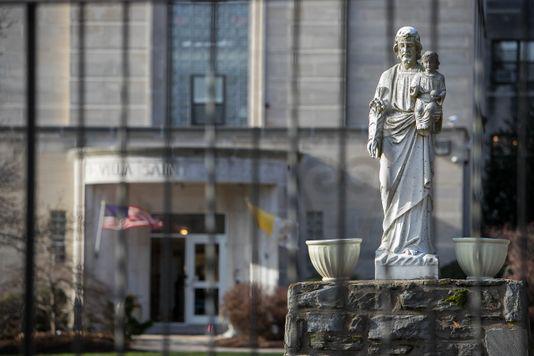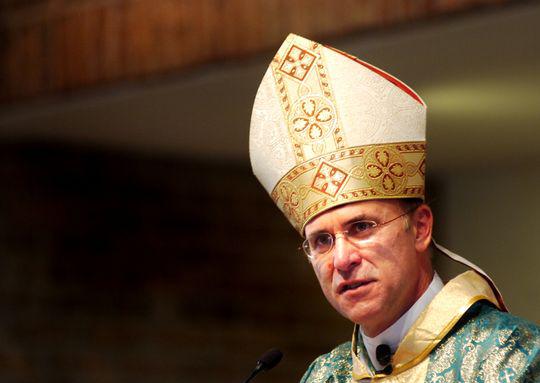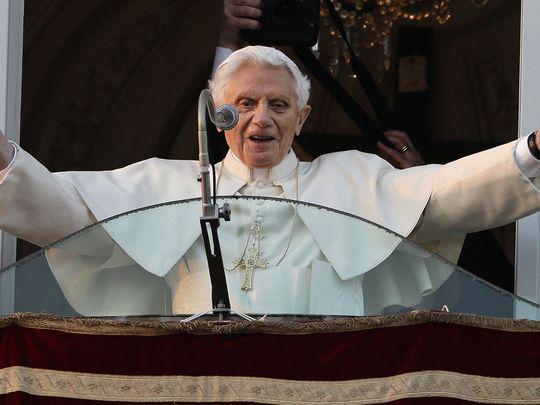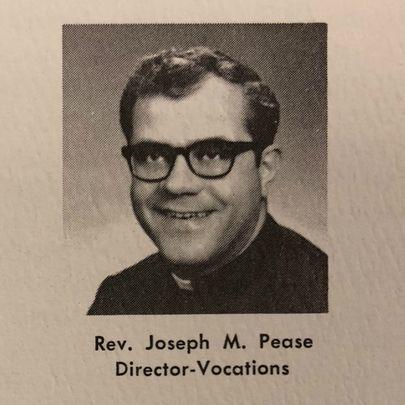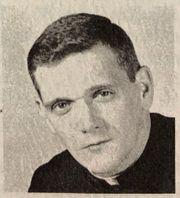|
'Prayer and penance:' More than 78 predator priests in Pa. still paid by Catholic church
By Candy Woodall
Their crimes of child sexual abuse have been acknowledged, but the church has shielded them from the criminal justice system. Decades after their crimes were reported and largely ignored, more than 78 priests accused of child sex abuse are still collecting paychecks and pensions from Pennsylvania dioceses. Each of those priests has been removed from ministry by Pennsylvania bishops, but the pope himself needs to sign off on all clerics being removed from the priesthood and the payroll. That process is formally known as laicization, and it can take years or decades, if it happens at all. The Vatican received 3,400 credible reports of priest abuse from 2004 to 2014, according to church statistics. About 850 priests were defrocked in that period of time for raping or molesting children. The rest were told to repent and ask forgiveness. Some diocese officials say the Vatican isn't motivated to remove the abusers from the priesthood if they are old or infirm. In other cases, the bishops decide themselves to keep them from being defrocked and allow abusive priests to receive church-funded retirements. Their final assignment is a life of prayer and penance, a program that cares for priests who raped children and allows them to die with a noble title – a reverend, a father, a retired priest. Prayer and penanceVilla Saint Joseph is a home for retired priests in Darby, Delaware County. It looks like a Catholic hospital or nursing home, with a small statue of the Virgin Mary on the front lawn. It's also where 16 priests who sexually abused children are housed by the Archdiocese of Philadelphia. They live closer to schools and parks than some convicted sex offenders would be allowed to, but they are not convicted sex offenders. They were relegated to canon law, the Catholic Church rules that have superseded state and federal law for decades. All 16 admitted to sexually abusing children, but their crimes were hidden for decades and reported after the Pennsylvania statute of limitations on child sex abuse had expired. That includes the rape and molestation of teenage boys and girls multiple times in the 1960s, '70s and '80s. Though there are two schools a half-mile away, and playgrounds and pediatric offices nearby, the archdiocese does not consider these men a threat to the community. “Priests in Prayer and Penance are monitored, and their movements and activities are restricted. The average age of the priests in Prayer and Penance is 77.5 years,” said Ken Gavin, chief communications officer for the Archdiocese of Philadelphia. All 16 of those priests are recorded by cameras and tracked by a full-time monitor, who is a former probation officer, according to diocese records. The reasons vary why those 16 priests are living diocese-funded lives of prayer and penance, rather than being laicized, Gavin said. “Health and advanced age are important considerations,” he said. Health is the main reason Joseph Pease hasn’t been laicized in the Harrisburg diocese, spokesman Mike Barley said. He is the only priest among 72 accused in the Harrisburg diocese still on the church payroll, and his entire payment goes toward his nursing home care, Barley said. Pease is 87, has severe dementia and wouldn’t be able to defend himself in the church's legal process, Barley said. Pease's sexual abuse of children dates back to the 1960s, when he was serving in York County, and spanned his career at 10 different parishes. Church documents show the Harrisburg diocese was aware of the abuse and sent Pease to a treatment center for six months before returning him to active ministry in several parishes. The Pennsylvania grand jury referred to that shuffling from parish to parish as laundering accused priests and allowing known offenders to return to ministry. In 1996, then-Bishop Nicholas Dattilo was aware of allegations against Pease and sent him a letter saying "it was inappropriate for minors to be in any place other than public areas of the rectory." Pease remained in active ministry until he retired in 2002 amid his confessions of child sex abuse. When the diocese asked Pease about a reported sexual assault involving a naked child in the upstairs rectory, Pease said he remembered the incident and that the victim "must have gotten excited. I must have turned him on more than I thought." The diocese received multiple complaints about Pease, but 12 years passed after his retirement before Bishop Ronald Gainer, who currently leads the diocese, suspended Pease from ministry. Gainer learned of at least three more victims, but he told the Vatican he was not seeking laicization. He told the pope he believed the harm done by Pease's past sexual misconduct was being sufficiently repaired. Gainer requested that Pease be able to "live out his remaining years in prayer and penance, without adding further anxiety or suffering to his situation, and without risking public knowledge of his crimes." The grand jury disagreed, saying Pease was unfit to carry the title of priest and the public needed to know about his crimes. Priests being "old or infirm" is among the top reasons the church chooses to assign them to a life of prayer and penance, rather than defrock them, according to canon law. But that logic is flawed, according to a former prosecutor. "There can't be special laws for priests and other laws for the rest of us," said Tom Kelly, a former prosecutor and York County judge who now works as a defense attorney. An important part of the legal process faced by everyone except these Catholic clergymen is that punishment in the criminal justice system is public information and lets the public know of safety concerns. "If that religion – and I was raised a Catholic – seeks to survive, it better cough up every single person that has committed a crime," Kelly said. A lawyer representing about 75 victims in Pennsylvania said he also doubts how well the church is monitoring the men in the prayer and penance program. "It's not possible to believe the enablers of the cover-up can properly supervise Catholic pedophile priests," said Mitchell Garabedian, a Boston attorney whose numerous lawsuits helped uncover the scandal in the Boston Archdiocese in 2002. "This is just another layer of the cover-up. It's another way to portray priests as victims." Canon law allows any priest removed from ministry, but not laicized, to receive a sustenance payment to meet their basic needs. Sustenance payments vary by diocese, usually $950 to $1,300 per month. For example, in Scranton, payments are $1,230.50 per month, according to diocese spokesman Bill Genello. Other dioceses said they did not know or chose not to disclose the amounts of the sustenance payments. If a priest is beyond retirement age and has a vested plan, he receives a pension, not sustenance payments. Dioceses are bound by civil law to provide pension payments for all priests who are vested, even if they confessed to child sex abuse or were laicized. Civil law also helped former Penn State defensive coordinator Jerry Sandusky keep his pension after he was convicted for sexually abusing at least 10 young boys. The big difference with Sandusky is he’s serving prison time. In October 2012, Sandusky was sentenced to 30 to 60 years in prison. He is 74 now, which is about the same age as several priests who are in the prayer and penance program and not criminally prosecuted. “Prayer and penance isn’t justice. It’s just another way the church is taking care of its priests instead of its victims,” said Michael McDonnell, a leader with the Philadelphia chapter of the Survivors Network of those Abused by Priests. "To me, as a victim, it feels like they are all being rewarded for keeping these crimes silent for decades." The prayer and penance program is proof the cover-up of child sex abuse continues today, according to James Faluszczak, a former priest who was abused by priests. "Nothing has changed," he said. Current bishops frequently say child sex abuse is a dark part of the church's past or the sins of the 1970s. But all these men were in positions of power through the cover-up, Faluszczak said of bishops and church leaders. "You don't become bishop unless the Vatican trusts you to handle this issue the way they want it handled, which is quietly," he said. Waiting on the popeBishops have authority to remove priests from ministry, but only the pope can laicize them, according to canon law. Diocese officials say that action from the Vatican has been slow to come. Across Pennsylvania today, there are scores of priests who have been removed from ministry, but not laicized:
The Altoona-Johnstown diocese also has priests waiting to be laicized, but officials there are still tallying the list. They expect to release it later this week, according to spokesman Tony DeGol. The Harrisburg diocese had two accused priests on the payroll until October, when Thomas Scala died a priest at the age of 71 in Florida. He's identified as a reverend and retired priest in his obituary. The diocese requested laicization for Scala, who was accused of inappropriate conduct with three children while serving as a priest in York County during the 1970s. The diocese learned of the allegations in 2011, Barley said. The laicization process moved slowly, and Scala died with his pension and benefits intact. “The process can take a long time, longer than we’d like,” Barley said. But there is one example of a Pennsylvania priest being laicized quickly that spotlights what seems to be the key to getting the Vatican's attention. It helps to have the risk of a scandalIn early 2006, former Harrisburg Bishop Kevin C. Rhoades was informed by the Erie diocese that one of its abusive priests, Father William F. Presley, was residing in Lancaster and masquerading as an honorable priest. Rhoades was getting the information for the first time and immediately joined an effort to have Presley laicized. Presley's history of abuse included the sexual assault of boys and girls during a 16-year period beginning in the 1970s, according to the Pennsylvania grand jury report. A victim told the grand jury Presley tried to hypnotize him and gave him sedatives before sexually abusing him multiple times. During one of the assaults, Presley brought in a female high school student. He used his position of power to manipulate both victims and said he would teach them how to have sex. Presley used index cards to guide their hands and bodies on where he wanted them to touch each other, according to the grand jury report. Presley said all of that was OK "because he was a priest," according to the grand jury report. Those details were made public by the grand jury report in August, some 12 years after Rhoades sent a letter to Pope Benedict in 2006. This line in that letter to the Vatican is believed to have expedited the laicization request: “Were this info to become known, especially in light of his offers of public assistance at Mass in several parishes, great public scandal would arise within this diocese,” Rhoades wrote of Presley. Rhoades knows that, when that sentence he wrote is taken out of context, it looks like he was protecting Presley or trying to hide abuse, but he said that’s not the case. “The Vatican wanted us to mention scandal in the letters. They were more in favor of imposing the penalty of laicization if there was a scandal. It was one of the criteria,” Rhoades told the York Daily Record from the Fort Wayne-South Bend, Indiana, diocese where he now serves. Under canon law, one of the key purposes of defrocking a priest is the “repair of scandal,” Rhoades said. By June 6, 2006, just a few months after the request from Rhoades, Pope Benedict XVI removed Presley from the priesthood. Seven years later, in February 2013, Pope Benedict resigned his position to "live a life of prayer" and became the first pope to leave office since Pope Gregory XII in 1415. His resignation came as a shock because all other popes held their positions until death. Presley was among 848 priests Pope Benedict defrocked, according to Vatican statistics. Statistics on the number of priests defrocked by Pope Francis were not immediately available. After Presley was defrocked, Rhoades wrote to the Lancaster County district attorney and informed law enforcement of Presley’s abuse and whereabouts. In the letter to the Vatican, Rhoades said he feared 77-year-old Presley would “continue his pattern of carefully insinuating himself into the lives of others as a prelude to violence and sexual misconduct.” He said Presley’s older age was “not necessarily an obstacle to his sexual misconduct.” But when it came to the Rev. Francis Bach, Rhoades thought Bach’s age in 2006 made him a better candidate for a life of prayer and penance than laicization. Bach was more than 70 and hospitalized with blood clots in his lungs and legs and already living a life of prayer and penance for more than 10 years, Rhoades said. In 1994, Bach admitted to raping and sexually abusing 14 boys between 14 and 16 years old, according to the grand jury report. His admission and retirement that year came after nearly three decades of abuse, an arrest for soliciting a male prostitute and being shuffled from parish to parish. More: Pa. priest arrested for soliciting sex before diocese placed him in central Pa. church Beyond his admission of guilt, additional victims came forward between 1994 and 2016, claiming Bach abused them as children. The Harrisburg diocese confronted Bach about those claims, which dated back to 1960 and the beginning of his priesthood at St. Patrick in York. "With my history, anything is possible," Bach told diocese officials, according to the grand jury report. Rhoades still believes Bach deserved a life of prayer and penance in 2006, not laicization. “He was terminally ill. I didn’t think the laicization process was needed at this point because he was dying,” Rhoades said. Bach died of cancer in March 2010. His obituary made it sound like he was a priest in good standing in the Harrisburg diocese. Rhoades admits the prayer and penance system is not perfect and he has regrets. “There’s no totally perfect way to monitor these guys. If they’re dismissed from the priesthood, they’re not monitored at all. My fear is some might abuse again if they’re removed completely and we have no way to track them,” Rhoades said. He understands the prayer and penance program isn’t much comfort to victims. “I wish I had released the names of past abusers earlier,” Rhoades said. “I released the names of anyone I removed, but I wish I had released the whole list sooner.” His only reason for not doing it sooner was simply because “nobody else was doing it then.” Now, bishops across the country are releasing lists of accused priests, including Rhoades at his new diocese in Indiana. Rhoades served as bishop in Harrisburg from 2004 through 2009. He started as bishop of the Fort Wayne-South Bend diocese in Indiana in January 2010, where he still serves and has removed abusive priests. Some are waiting to be laicized. Some are remorseful, repentant and will go into the prayer and penance program. This is where faith and religion clash with the secular world. Victims and others disgusted by child sex abuse want the courtroom justice that anyone outside of the cloth would face. To Rhoades and others who’ve devoted their lives to the Catholic faith, there is only one arbiter of justice. “I love being a bishop, but this is the hardest part and the most painful part,” Rhoades said. He’s met with many victims and has seen the psychological, emotional and spiritual harm after their “encounters with a terrible evil.” “It breaks my heart to see in a place where they should’ve encountered the love of God, they encountered the opposite,” Rhoades said. Some of those victims have forgiven their abusers. Others never will. Rhoades doesn’t see the abusive priests – or anyone – as beyond redemption. “That goes against faith. We pray for them. It’s incompatible with the Christian faith to say there can’t be repentance for them,” Rhoades said. “God is the ultimate judge of these men.”
|
.
Any original material on these pages is copyright © BishopAccountability.org 2004. Reproduce freely with attribution.
